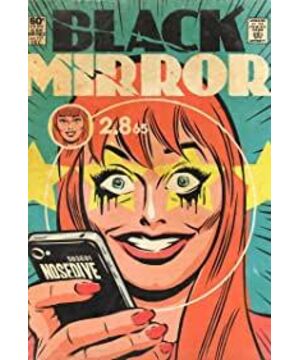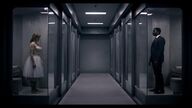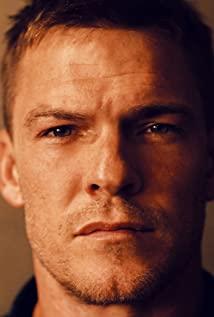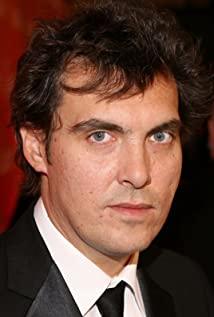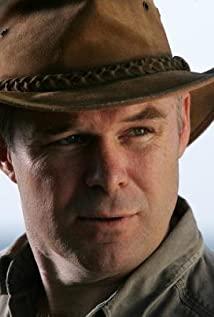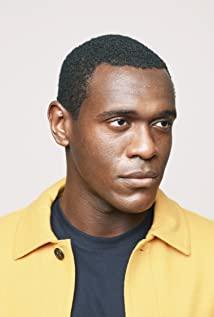1. Life and death
2. Choice and meaning
3. Love and freedom
------------ --There is no fact, only interpretation ----------------
1) Life and death: eternal life vs. eternal death
. Everyone has this choice after birth: to live or Die.
Just as Shakespeare wrote this classic in "Hamlet": "To be, or not to be: that is the question."
Camus also began to tell the "Myth of Sisyphus" with this passage: "Really serious There is only one philosophical question, and that is suicide. Whether life is worth living is the basic question of philosophy. The rest... are second... the answer must be given first. "
The reason why people who are alive are still alive now is part of their initiative Choosing to live, the other part is that they live passively without realizing that they can make a choice of life and death.
The characters in the play have one more life choice than us in real life-not only can they choose to live or die after birth, but they can also make another choice before their life ends: immortality or eternal death.
If you were a character in the play and had the option of eternal life and death, how would you choose? ... Before answering this question, let us pause for a few seconds and think about another question: If there is no life, will there be death?
We never think that stones have life, so we never worry about the death of stones. Can you think of it this way: The prerequisite for death is the existence of life? In other words: there must be life before death.
If we accept this view: the existence of death presupposes the existence of life, then: since life has already passed away, how can eternal death (eternal death) need to be anxious? !
In turn, ask again: If there is no death, is there still life?
Similarly, for us, we have never thought that stones have the so-called death, so we never think that stones have life. Can it be considered that the existence of life must also be premised on the existence of death? In other words: life and death are the prerequisites for each other's existence, and they are two sides of an inseparable one.
If we accept that life and death are two inseparable aspects, then: there is no death in San Junipero, so how can life be "eternal life"?
Therefore, based on the above understanding of life and death at the daily semantic level, neither "eternal death" nor "eternal life" exist. To be more precise: eternal "life" or eternal "death" is not our daily semantic life or death. They are just a kind of "existence", a kind of existence that doesn't care about life and death, just like a stone.
Let's take a look at how the people in the play understand this question, or what kind of answers the screenwriter wants to pass to us through the people in the play.
People in the play have two choices before they die:
-Option 1: Pass (Just Gone, eternal death)
-Option 2: Pass Over (living in the cloud San Junipero, eternal life)
facing Option 1 and Option 2— —Eternal death vs. immortality, how to choose the characters in the play?
-Richard (Kelly's husband) chose "eternal death"
-Yorkie hopes to choose "eternal life". With her own efforts and the help of others, she finally succeeded in choosing "eternal life"
-Yorkie's parents hope to let her daughter passively choose "eternal death" "
-Kelly was first sad because her husband Richard chose "eternal death", but she later refused Yorkie's invitation to "eternal life". In the end, she changed her decision again and decided to choose "eternal life".
Why did they make such a difference or before and after? Contradictory choice? --significance!
-------------------------------------------------- -------
2) Choice and meaning: How do you define meaning and decide what choice you make.
Our choice stems from our belief. And the reason why we believe that we have such a belief stems from our own definition of the meaning of life. The choice of life and death of the people in the play is also derived from the beliefs they hold, and behind these beliefs, their definition of the meaning of life:
-Richard refuses to live forever in the cloud because he has his own beliefs——How can I spend eternity in this fucking graveyard, when she (his beloved daughter) missed out, how can I?. He has things he believes in, and things he refuses to believe. And the eternal life in the cloud was one of many things he refused to believe. (He had his viewpoint. There were things he believed and things he did'nt believe in, and this place was on of them. Wouldn't even visit, take the trial run.--by Kelly)他对生活的翻译, Lies in the person he loves. In a world without someone he loves, life has no meaning. He refuses to live a life without meaning (that he believes).
-Yorkie, after experiencing the reality of life in the cloud in San Junipero, did not hesitate to choose to pass over to eternal life in the cloud after death instead of just gone and eternal death. When she learned that Kelly's husband refused to accept "immortality", she was surprised to ask: why? why wouldn't anyone take it? It is not difficult to imagine and understand the instant indulge in the "feeling" incomparably real colorful world.) Her definition of the meaning of life is to be able to "really" perceive and experience. San Junipero's life is real enough to make sense to her.
-Why did Yorkie's parents refuse their daughter to pass over to the cloud? Because they are devout believers, they believe that there is a soul after death, and the whole meaning of life is to let the soul live in heaven, not in the cloud San Junipero. (What else after death? Do you believe in the soul?)-
Kelly first hoped that her husband would choose immortality, then refused Yorkie's invitation to immortality, and finally chose immortality.
What is the origin of her transformation? What does she believe? What is the meaning of her life as worth living? ...
Kelly doesn't believe in soul or heaven, she only believes in existence. She said: I wish I could believe that he (its husband Richard) is with our daughter now (reunited in heaven), but I don't. I believe they're nowhere. Just Gone (just no longer exists).
She originally hoped that her husband could choose to Pass over eternal life after his death, which stems from the "love" between her and her husband-bond, promise, boredom, longing, laughter, sacrifice and pay for each other-the bond, the commitment, the boredom , the yearning, the laughter, the love of it…the fucking love, you just cannot know!…every thing we sacrificed, the years I gave him, the years he gives me.
She refused Yorkie’s invitation for immortality, and could it not be derived from the same belief: who can ever make sense of forever? ——She asked, How can I spend eternity in this fucking graveyard, when he (his beloved husband) missed out , how can I? In a world where no feeling can be found, what is the meaning of a walking dead life?
She finally decided to pass over and Yorkie live forever in San Junipero, also based on the same belief-the "love" between her and Yorkie.
-------------------------------------------------- -------
3) Love and freedom: the origin of human nature-escape from freedom
Sartre believes that we humans are born free and are destined to be free.
Many people will oppose this view, especially people who feel all kinds of constraints in their daily lives. They think: Life is more like a process of constantly breaking free from shackles.
Are freedom and bondage really incapable of coexisting like day and night?
Judging from the reality of mankind, it is quite the opposite—for mankind, they are destined to coexist eternally.
Immortality (such as Yorkie's definition of forever in the play: however long you want) means having enough time and resources to do whatever you want. This can be said to be the greatest degree of freedom.
Both Richard and Kelly reject eternal life, the maximum degree of freedom. Why?
Their answer is: because there is no "love" in this "eternity" and "freedom"-bondage, commitment, boredom, longing, laughter, sacrifice and
giving to each other... Their choice is not exactly "to the bound Are you throwing yourself into the trap" and "refusal to escape from freedom"?
However, out of the plot, why are we in real life like this? Love, hate, affection, hatred-this is the meaning of most of our lives, and it is also the only origin of our humanity.
View more about Nosedive reviews


